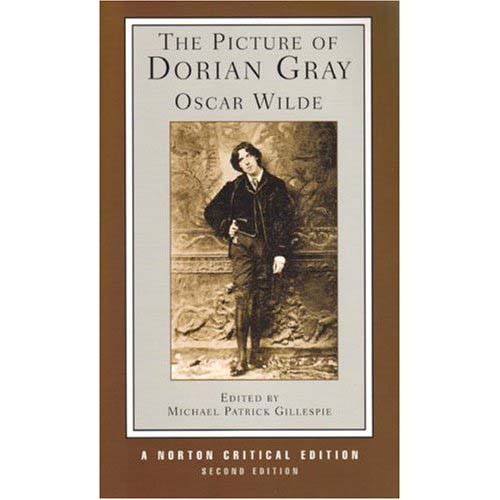Book Review: “Dorian Gray” paints grim picture of narcissism

Photo by Courtsey/Amazon Books
“The Picture of Dorian Gray” by Oscar Wilde.
November 7, 2007
“There is only one thing in the world worse than being talked about, and that is not being talked about.”
Oscar Wilde, a man whose life was a walking testimony of this statement, wrote these words. His achievement as an author was only trumped by his ignominy following a trial in which he was convicted of homosexual activities.
Wilde was an Irishman who gained fame and success as a playwright in London during the late 1800s. Several of his plays, including “The Importance of Being Earnest,” are successful to this day. But it was the one novel he wrote that gave him more recognition than any of his other work.
“The Picture of Dorian Gray” is the story of a handsome young man who becomes obsessed with his own beauty. Dorian’s narcissism stems from a stunning portrait of him, painted by his friend, Basil Hallward, who is inspired by Dorian’s exquisite features.
Dorian possesses beauty in character at the beginning of the story, but as the tale unfolds, Dorian deserts conventional morality to pursue aestheticism, regardless of the consequences.
His transformation is due largely to the influence of Basil’s friend, Lord Henry Wotton, a staunch hedonist who convinces Dorian that “the only way to get rid of a temptation is to yield to it.”
Dorian’s obsession with his youth and beauty is fully realized when he wishes that the portrait of him would grow old and ugly, while he remains young and attractive.
Strangely enough, Dorian’s wish is granted. He remains a flower of youth, while his picture ages and acquires negative attributes of his self-indulgent lifestyle.
He proceeds to alienate himself from all his friends and descends into the depths of self-gratification, betrayal and murder.
Wilde’s novel was not well received initially. His portrayal of morality, as well as the homoerotic overtones subtly posited throughout the book, brought immediate castigation from his literary peers. Since that time, it has been recognized as a classic work of modern literature.
Perhaps unintentionally, Wilde clearly demonstrates the harmful effects of unmitigated hedonism through Dorian’s tragic demise. Dorian Gray is a useful reminder for those convinced that pleasure and beauty are worth pursuing regardless of the cost. Because of his blind quest, he experiences more suffering and ugliness than he could have imagined, also inflicting pain and torment on anyone in his path
Waxing eloquent was never a problem for Wilde. Breathtaking description litters the landscape of his prose, but his colorful style never becomes pretentious. It is an enjoyable, gripping tale from start to finish and never loses the reader on unnecessary tangents.
Because of his brilliant masterpiece, Wilde and his radical ideas have not stopped being talked about. Like Dorian Gray, the book never grows old or loses its beauty.






